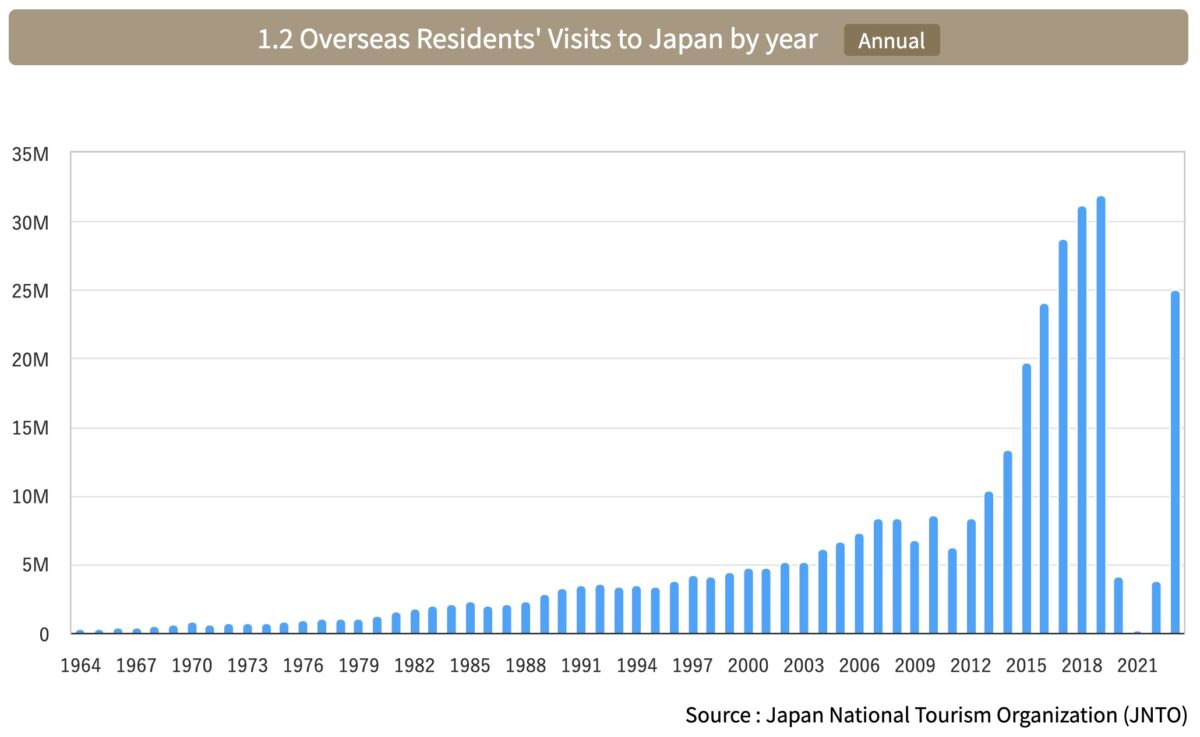Last night I was finishing up my evening social media work when I noticed a phrase was trending on X. It was 外国人が嫌い gaikoku-jin ga kirai, or “hatred of foreigners,” which was a less-than-perfect translation of the word “xenophobia.” Let’s examine whether the Japanese are xenophobic in this blog post!
Do you need more awesome anime figures in your life? Great, because J-List has a huge number of gorgeous figures in stock which are being closed out with a big 25% discount. The figures can all be at your house within a few days! Start browsing here!
Did Joe Biden Say That Japan Was Xenophobic?
Last Wednesday, U.S. President Joe Biden was speaking at a fundraising event when he used the term “xenophobic” in relation to various countries, including Japan. The exact quote was, “You know, one of the reasons why our economy is growing is because of [immigrants]. We welcome immigrants. Think about it. Why is China stalling so badly economically? Why is Japan having trouble? Why is Russia? Why is India? Because they’re xenophobic. They don’t want immigrants.”
This riled up Japanese Twitter/X quite a lot, and led to a brisk discussion of whether the Japanese are xenophobic or not. Or rather, whether they “hate foreigners or not,” since the term was translated into Japanese that way.
What does “xenophobic” actually mean? I would personally define it as “fear out the outside world.” However, the Oxford online dictionary informs me that it means “having or showing a dislike of or prejudice against people from other countries” or “the fear or hatred of people who are perceived as being different from oneself.” So maybe the translation shared on X wasn’t so far off.
Is Japan Xenophobic? Japanese X Users Respond!
I spent a few minutes reading through Japanese X users’ comments, and the discussion they generated. The vast majority of responders essentially said, “I don’t dislike foreigners at all. I only dislike people who don’t follow Japanese rules and customs.” About half the comments brought up the phrase ‘when in Rome, do as the Romans do’ and only asked that foreigners follow this rule when visiting Japan.
Many responders expressed positive sentiments about foreigners who take an interest in their country. “I absolutely love foreigners who like Japan and respect our culture. I welcome them wholeheartedly, no matter where they’re from.”
The Explosion of “Inbound” Foreigner Visitors to Japan
Japan has always been a wonderful place to visit. As I’ve written before, when we visit Japan for the first time, we’re walking in the footsteps of such great people as the Hellen Keller and the Dalai Lama. If you struggle to get your yukata on properly after getting back from feeding the deer in Nara Park, you’re having the exact same experience that Albert Einstein had when he visited the country for four months in 1922.
What do Tommy Lee Jones, Ulysses S. Grant, and Helen Keller all have in common? Read this blog post to find out!
Japan has always been a popular tourist destination for millions around the world. But inbound visitors positively exploded from around 2013, as the world recovered from the Great Financial Crisis. Tourism into Japan quickly rose from around 5 million visitors per year to a peak of 31 million in 2019. I specifically remember that year, when Japan hosted the Rugby World Cup. Suddenly all my favorite bars in Shinjuku were overflowing with huge rugby fans from the UK, Ireland and New Zealand, leaving me no place to sit.
Then COVID-19 hit, causing tourism to crash to zero. The timing was especially hard on restaurant and bar owners, as they’d spent extra money to renovate and prepare English-language menus for the rush of foreign visitors set to accompany the Tokyo 2020 Olympics…but none of that went off as planned. Foreign visitors finally returned to Japan in 2023.
How Do the Japanese Feel about Foreign Tourists?
I can say with 100% surety that the Japanese are happy to have foreigners visit their country. They’re tickled pink when they meet people from the U.S., Italy, Germany, Singapore, Australia, Taiwan, South Korea, Thailand, or wherever. They know that people all around the world love Japan, and are happy to have them visit. Also, everyone is aware that tourism gives a major boost to Japan’s economy.
If Japanese people don’t always chat foreign visitors up, it’s partially because they’re used to respecting the personal space of others. Another reason is that they’re unsure of their linguistic skills. After all, most Japanese have “only” studied 6-8 years of English. You can’t expect someone to actually speak a language after so short a time!
What Rules Do Japanese Want Foreigners to Follow?
Having so many foreign visitors flooding into Japan can naturally cause stress. The biggest problem is usually with visitors from mainland China. All too often they have bad manners compared to visitors from other countries, including Chinese from Hong Kong, Taiwan and Malaysia.
Some of the most frustrating problems include:
- Cutting in line is a big problem. Apparently in China, if you leave six inches of space between the person in front of you while waiting in line, it’s socially acceptable for someone to step into that space.
- Bad sakura manners. Before COVID-19 there were problems with mainland Chinese climbing up into cherry trees during sakura season and cutting off branches to take back home. This is an unbelievably rude thing to do.
- Poor bath manners. Since hotels in Japan often have large communal baths, it’s important to know and follow the proper etiquette. It’s hard to communicate the importance of this to a large group of Chinese who have never seen a Japanese bath before.
- Being loud in groups. Not following local smoking rules. Not separating garbage as asked to do.
I could go on. Obviously, mainland China has had less experience with traveling internationally compared to other nations, having become an economic powerhouse relatively recently. We can expect that they’ll improve in the future.
Want to know the things you should avoid doing on your next visit to Japan? Read this blog post!
But What about Foreign Workers Living in Japan?
Naturally there are thousands of foreigners doing important jobs in Japan. The Japanese TV you bought last month was almost certainly assembled by factory workers from Brazil, Vietnam or China working in a factory in Shizuoka. Every anime is made with help from foreign animation staff, both inside Japan and all around Asia. Every time Mrs. J-List or I visit a convenience store, we see people from the Philippines, Vietnam, and Nepal doing important jobs. The other day I met a guy from Uzbekistan. Wow!
J-List couldn’t do the work we do without the help of our foreign employees. In addition to our Japanese staff, we’ve had employees from the U.S., the Philippines, Canada, South Africa, and France over the years. All enjoyed their time in Japan and were treated warmly here. Our old web designer from France observed, “Japan treats me better than my own country treats its foreigners.”
Could Japan do more? Absolutely. A few years ago there was a test program to hire Indonesian nurses to work in Japan. But the government required the nurses to have perfect Japanese skills, including reading and writing. This was too difficult for most applicants to manage, and the program failed to bear fruit.
Considering how important a vibrant labor force is to a growing economy, Japan definitely needs to do better. In 1961, Germany set up a “guest worker” program allowing thousands of Turkish citizens to come and work. It fueled the country’s economic miracle, and today there are millions of Turks or Germans of Turkish descent in Germany contributing to the country in various ways. I believe Japan will eventually need to do something like this, perhaps with countries that it has friendly relations with, like Taiwan, Malaysia or Indonesia.
Is Japan Xenophobic? Absolutely Not.
To be absolutely clear, Japan does not dislike foreigners. They’re happy to have them, whether it’s visitors coming to take in the sights and sounds of Japan, or to do the important jobs that need doing. The main thing they ask of anyone entering the country is that they follow the rules.
Thanks for reading this blog post about the question of whether Japan is xenophobic or not. Got any questions or comments you’d like me to address? Post them in the comments below!
Let’s Chat
You made it to the end of this post! Thank you! As a token of our appreciation, enjoy an extra 5% off your next order when you use the code BLOG at checkout. Also, don’t forget to follow J-List on all our platforms!
- Twitter / X, where Peter posts anime booba for you
- Bluesky, where we post several times a day
- Facebook, where we used to share memes and discuss anime
- Discord, if you want to chat with other J-List customers of culture

Do you need more awesome anime figures in your life? Great, because J-List has a huge number of gorgeous figures in stock which are being closed out with a big 25% discount. The figures can all be at your house within a few days! Start browsing here!


















